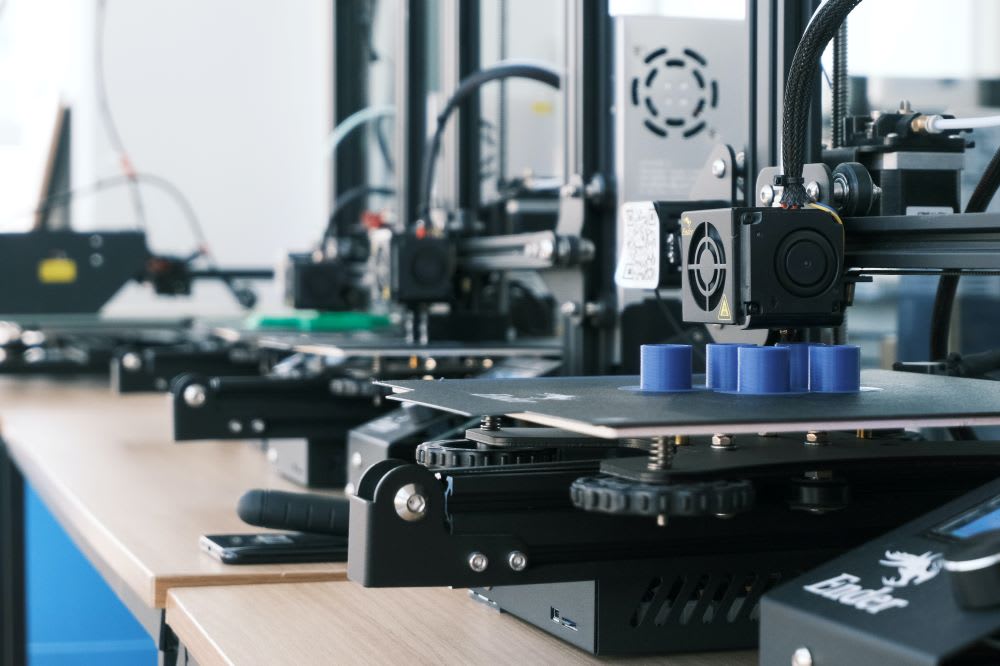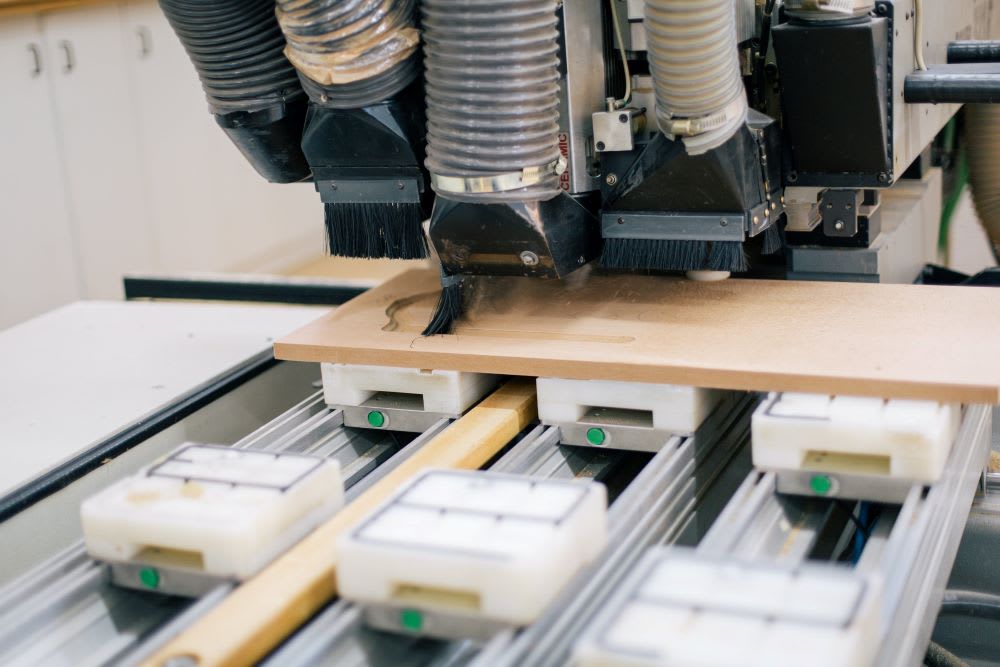- Published 6 Feb 2024
- Last Modified 6 Feb 2024
- 5 min
3 Key Industrial Automation Trends In 2024: A Look Into The Future
Discover Singapore's 2024 industrial automation trends: AI, labor market shifts, and advanced technologies shaping the future of industry.

As we venture deeper into 2024, industries across Singapore – from manufacturing to healthcare – are witnessing significant shifts regarding industrial automation and Artificial Intelligence (AI). These trends not only reflect global advancements in automation technology and changing labour markets but also indicate a strategic direction for businesses looking to adapt and thrive. Let's explore three key trends that are shaping the future of industrial automation in Singapore.

Struggling Global Labour Market
Globally, labour markets are facing significant challenges, including in Singapore. According to the Ministry of Manpower’s Labour Market 2023 Q3 report, local labour trends include cooling labour demands, a slight uptick in resident long-term unemployment, and increased retrenchment, particularly in the wholesale trade sector. Singapore has also experienced a loss of skilled interest in the manufacturing sector, creating a gap between worker capabilities and the demands of modern industry.
Industrial automation could potentially be a bridge in this shrinking workforce landscape. By automating repetitive and manual tasks, companies can not only enhance efficiency but also redirect their human workforce towards more creative and strategic roles. New roles in growth sectors could also be opened up, aligning with the labour market’s demands.
However, it's crucial that this automation does not alienate new or existing workers but rather works alongside them, enhancing their capabilities and job satisfaction. Reskilling and upgrading worker capabilities will thus be key in educating the workforce on industrial automation and related technologies so that employees see them as an aide rather than as a threat to their livelihoods.
Pushing Automation Tech to New Limits

Remarkable developments have been made in Artificial Intelligence (AI), Machine Learning (ML), and related fields like the Internet of Things (IoT). As such, automation, once a novel concept, is now increasingly commonplace in Singapore’s business landscape. Timelines that traditionally spanned months or years can now be reduced to days or weeks, a standout benefit for industries characterised by shorter product lifecycles, such as Singapore’s high-tech startups.
For companies that have already incorporated automation into their daily operations, the focus now shifts to increasing the precision, efficiency, and accuracy of automation technologies for greater return on investment (ROI). Businesses are also exploring ways to make automation more intelligent and responsive. This includes integrating AI with traditional industrial automation elements like infrared temperature sensors, industrial PCs, or motor starters to create systems that are not only automated but also adaptively intelligent to changing demands.
New Horizons in AI Technology
2023 was a big year for Large Language Models (LLMs), with one of the most notable releases being OpenAI’s ChatGPT, Google’s BARD, and Meta’s LLaMA. ChatGPT, in particular, has become ubiquitous across platforms due to its open API, free access, and ease of use, prompting businesses to rethink their processes and AI's role in them.
For businesses in Singapore, this could mean leveraging AI for more than just operational tasks. AI can now play a role in decision-making, predictive analysis, and even in enhancing customer experiences. For instance, integrating AI with industrial automation could lead to smarter industrial PCs that not only control machinery but also predict maintenance needs or optimise production schedules based on real-time data.
This synergy between autonomous robotics and machine learning is particularly significant for Singapore’s manufacturing sector, with the potential to enhance the efficiency, reliability, and quality of everyday operations. This development further aligns with Singapore’s infrastructural push towards becoming a smart nation, where technology and innovation drive economic growth and improve the quality of life.
Optimising Industrial Automation for Your Operations
The landscape of industrial automation in Singapore is evolving rapidly, driven by global advancements in AI and the need to address labour market challenges. As such, embracing and getting ahead of these trends is essential for businesses to stay competitive and efficient.
RS Singapore offers a vast array of automation and control gear to help businesses navigate these changes and capitalise on the latest technological advancements. Explore our catalogue of automation and control gear, and discover how we can help your business make a strategic move towards a more efficient and innovative future. Or explore our blog for more useful guides, including how to optimise energy consumption for pumping water and essential PPE requirements in Singapore.
Popular Automation and Control Gear Brands
Phoenix Contact
Phoenix Contact excels in providing top-tier solutions for industrial automation, such as industrial PCs. Their products are designed for reliability and high performance, making them ideal for advanced manufacturing sectors.
Related links
- 12% OFF for RS PRO Products until June 30000
- JAE, N/MS Series Industrial & Automation Circular Connector...
- The Future of Automation – A Guide to What’s Next
- MikroElektronika ccRF2 Click CC1120 ISM for Home, Industrial...
- Amphenol Air LB Shell Size 27mm for use with Industrial &...
- Your Smart Choice for Industrial Automation Solutions
- Banner SA-M30 Series 30mm Probe RoHS Compliant, UL
- Banner SA Series 30mm Probe RoHS Compliant, UL
